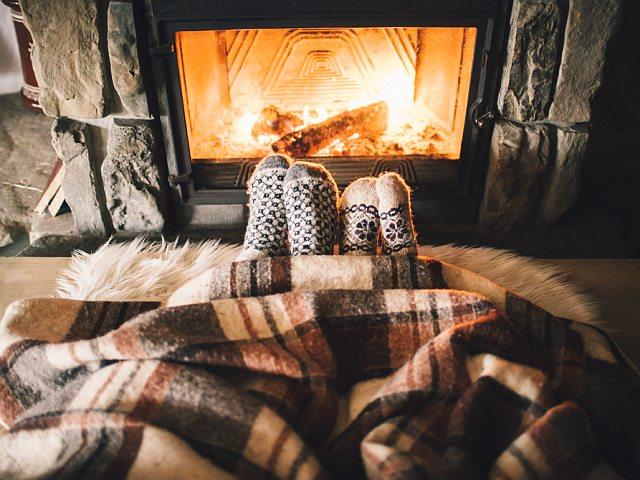Keep warm and safe this winter with these 4 tips
Category News
This winter could be cold and dark for millions of South Africans, with Eskom expecting between 37 and 101 days of load shedding in the coming months.

It's important to take some basic precautions to make sure you don't become one of South Africa's winter home fire statistics.
Home heating is one of the leading causes of house fires and can easily occur if you're not careful how you heat your home. So, what can you do to stay warm and safe this winter?:
1. Keep the heat in your house
There are several things you can do to retain as much heat in your house as possible, especially when the power is off. Keep your curtains closed, close the doors to unused rooms, make sure all windows are properly closed, and put rolled-up towels in the cracks under your doors. Dress cleverly: layers of loose-fitting, lightweight, warm clothing will keep you warmer than one bulky sweater.
2. Check your heat sources
All heating equipment can be dangerous if not handled carefully. Make sure the pipes on your gas heaters are secure and keep anything that can burn at least a metre away from the heat source.
When the power is on, be sure to plug only one heat-producing appliance into one outlet at a time, and plug power cords directly into wall sockets, and not an extension cord. And if possible, don't use candles for lighting: when the power goes off, rather use flashlights or LED lights.
3. Make sure your generator is safe
When the power goes off, suburbia comes alive with the buzz of generators. But be sure not to use a generator inside your home, garage or shed, even if you have doors and windows open. Carbon monoxide poisoning kills many South Africans every year. And make sure your generator is installed and certified by professionals.
You can't just buy a generator at your local hardware store and stick an extension cord into a wall socket. That's called back-feeding, and it's dangerous. All generators and alternative power supplies must be installed professionally by an electrician, or you run the risk of fires and damage to your appliances.
4. Review your insurance cover
Rather be safe than sorry. Make sure your buildings and home contents are covered properly. This includes making sure they're covered for their current replacement value, not what you paid for them. For your buildings, make sure you have enough insurance to rebuild your home entirely if you need to.
Insurance cover for fire damage will depend on which type of cover you have, be it car insurance, buildings insurance, household insurance or business insurance. You cannot claim for fire damage to your furniture if you only have buildings insurance.
Author: Koalet Properties


